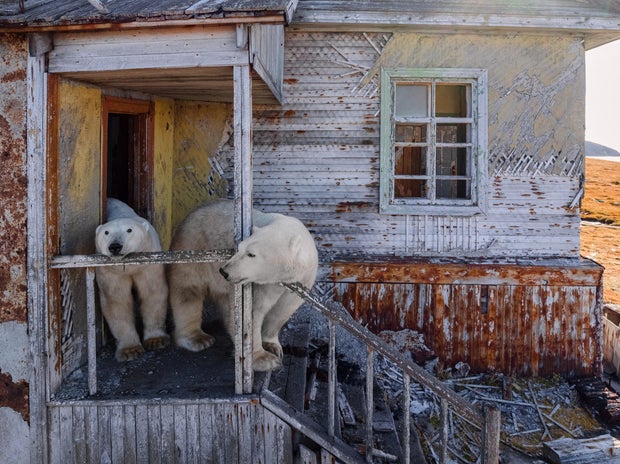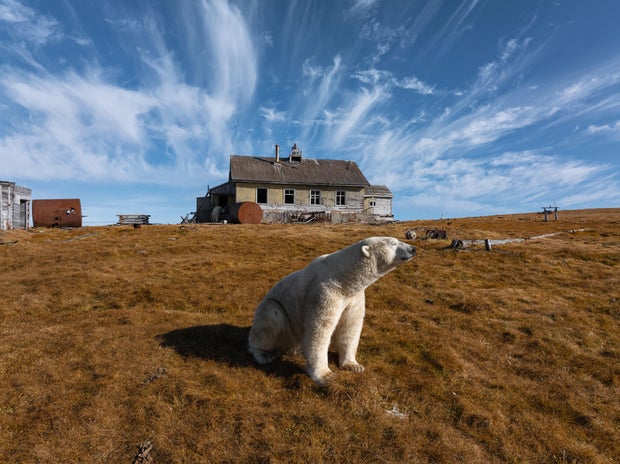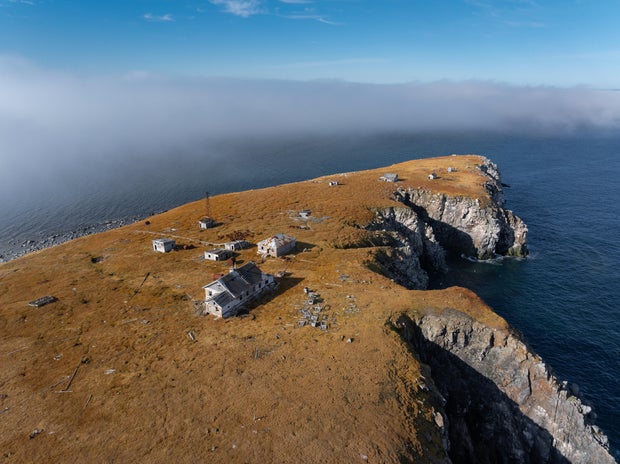Polar bears on an island off Russia’s far eastern coast have taken over an abandoned research station and made themselves at home.
Drone footage captured by photographer Vadim Makhorov shows the large bears getting comfortable in the remains of a Soviet-era weather station on Kolyuchin Island. The tiny island is about seven miles from the coast of the Chukotka Peninsula, which faces Alaska, the Associated Press said. The station was abandoned in the 1990s, after the Soviet Union fell, the BBC reported.
Makhorov was using a drone to film the landscape of the island when he saw the bears, he said in a Facebook post. Photos show the bears inside homes, looking out windows and resting on porches.
Vadim Makhorov / AP
“Bears are no strangers to the feeling of comfort and coziness,” Makhorov said in the post. “They perceive homes as shelter.”
Makharov said that there were about 20 bears in the area, with a bed of walruses near the research station. A birds-eye photo shows several structures in various states of disrepair, with some debris scattered around the area. Other images show the bears resting outside. One bear tried to catch Makhorov’s drone as it approached, video showed.
Vadim Makhorov / AP
“Polar bears are extremely dangerous predators, but why do they look so cute and friendly in photos?” he added in another post.
It’s not the first time polar bears have been intrigued by human settlements. In 2016, a group of seven bears besieged five researchers at a weather station on a Russian island in the Arctic. A passing ship delivered flares and deployed a helicopter to chase away the animals, which had killed one of the station’s two dogs and smashed windows at the research site. The bears were eventually driven away.
Vadim Makhorov / AP
Hungry polar bears have also approached residential areas and even airports while searching for food. The animals are considered a protected species and rarely pose a threat to humans, but can be deadly. A worker at a remote government radar site in the Canadian Arctic was killed by a pair of polar bears in 2024.
Warming temperatures in the Arctic is changing polar bears’ behavior, experts told CBS News. Scientists from Polar Bear International told CBS News that melting sea ice and other environmental changes are keeping bears closer to humans and farther from the seal lairs they typically prey on. The species is also experiencing a loss in genetic diversity as the species inbreeds in a fight to survive. A 2020 study found that polar bears could be extinct by 2100.
Vadim Makhorov / AP



